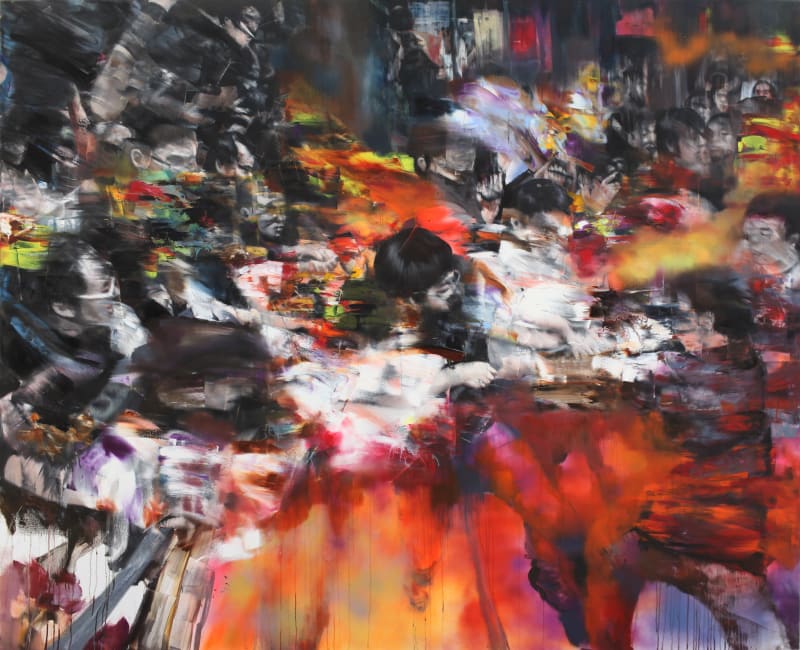On December 13, 1978, two years after Chairman Mao Zedong’s death, Chinese political leader Deng Xiaoping gave a speech that envisioned a bold new future for the ancient nation, one in which the isolationist country would become an active arbiter of economic relations with the West.
This “opening up” of China had far-reaching and almost immediate cultural consequences as Chinese artists began to deviate from sanctioned Soviet Realist aesthetics into new modes of expression. Considering his work, it is perhaps unsurprising that contemporary painter Li Tianbing (born 1974) came of age in China during this period of upheaval, economic transformation, and cultural re-imagination.
Li Tianbing considers himself part of a generation of Chinese “New Wave” artists, who struggled to bring art-making out of the realm of political messaging. His large-scale canvases have often personally confronted issues of isolation in post-socialist China, which stemmed from the nation’s “one-child policy,” established in 1980.
In “Urban Scene,” the artist’s new exhibition at London’s JD Malat Gallery, Li Tianbing has turned his inquiries toward public spectacles such as mass protests unfolding in China today.
